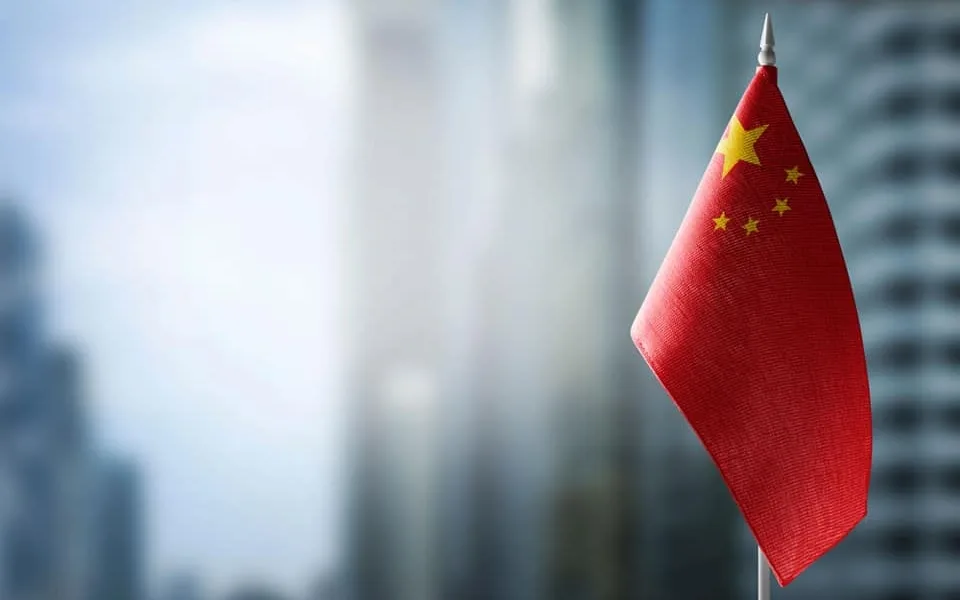China is in the centre of controversy following allegations of stealing intellectual property by chiefs of world’s top most intelligence bodies.In an unprecedented move, Five Eyes intelligence partners – Australia, US, United Kingdom, New Zealand and Canada met in California with private US companies from the Silicon Valley.
They discussed China’s involvement in widespread and damaging theft of intellectual property targeting particularly of tech firms. The most unusual was that intelligence bosses brought their usually-secret meeting to the public, reflected the nature of China’s threat. The accusations include theft of quantum
technology and robotic, biotechnology and Artificial Intelligence.
This is the first time all members of Five Eyes have publicly called out China's actions collectively. In response, the alliance is hoping both private industry and academia will help to counter the threats, which Wray describes as "a bigger hacking program than that of every other major nation combined."
Describing China as an ‘unprecedented threat’ FBI Director Christopher Wray said that "China has long targeted businesses with a web of techniques all at once: cyber intrusions, human intelligence operations, seemingly innocuous corporate investments and transactions … Every strand of that web had become more brazen, and more dangerous."
Speaking at the meeting,Australia’s spy chief accused China of the “most sustained and sophisticated” theft of intellectual property in history, with local tech companies being particularly targeted. It was for the first time when these countries met. Australia’s spy chief has revealed an espionage threat was busted at a top research institution, with the academic enlisted by a Chinese ‘spy master’.
ASIO Director-General Mike Burgess called out China’s “ruthless business model” of using espionage to gain a global advantage at the Five Eyes summit in California. According to intelligence organisations’ chiefs, the theft is occurring across a wide range of sectors, covering everything from quantum technology and robotics to biotechnology and AI.
These accusations are not without basis. A former employee with energy conglomerate General Electric Power was sent to jail for two years by the US department of Justice in January for stealing confidential files for his accomplice in China. He stole it from his employers in the binary code of a digital code of a
sunset. The accused, Zheng Xiaoqing, US citizen, had used steganography, a means of hiding a data file within the code of another data file on multiple occasions to take sensitive files from GE.The information,related to the design and manufacture of gas and steam turbines, including turbine blades and turbine seals, was worth millions of US dollars.
The information was meant to benefit the Chinese government, as well as China-based companies and universities. In November, a Chinese national Xu Yanjunwas sentenced to 20 years in prison for
plotting to steal trade secrets from several US aviation and aerospace companies including GE.
According to news reports, he was a career spy. The theft of trade secrets is attractive because it allows countries to "leapfrog up global value chains relatively quickly - and without the costs, both in terms of time and money, of relying completely on indigenous capabilities", Nick Marro of the Economist Intelligence Unit reportedly said. Wray had earlier told a gathering of business leaders and academics in London that China aimed to "ransack" the intellectual property of Western companies so it can speed up its own industrial development and eventually dominate key industries. He had warned that it was snooping on companies everywhere "from big cities to small towns - from Fortune 100s to start-ups, folks that focus on everything from aviation, to AI, to pharma". Canada has long accused China of meddling in its domestic affairs.
In 1997 report of the Canadian Security Intelligence Service, and the Royal Canadian Mounted
Police (RCMP), warned of a collaboration between Chinese Communist Party (CCP) officials, criminals, mafia and business tycoons to infiltrate Canadian businesses, to steal intellectual property rights and to interfere in the management of the country. While many of the Canadian accusations, along
with the evidence, have been missed by the world media at large, MengWanzhou's arrest in 2019 made global headlines.
The RCMP, on a warrant from US officials, arrested Huawei executive Meng, the daughter of the
company's founder. Meng, the Chief Financial Officer of Huawei, was accused of violating US sanctions on Iran. China retaliated and unleashed hostage diplomacy, arresting two Canadians in China on charges of espionage. The crisis in Canada-China relations lasted till 2021, when Meng's case was dismissed.
In 2018, the US Department of Justice indicted five Chinese nationals for hacking into the computer systems of American companies, including Boeing and Northrop Grumman, to steal trade secrets. In 2019, the US Department of Commerce placed Huawei, a Chinese telecommunications company, on its Entity List, effectively banning US companies from doing business with it. The Commerce Department accused Huawei of being a national security threat, citing its alleged involvement in intellectual property theft and other illegal activities.
In 2020, the Australian government released a report accusing China of using a variety of methods to steal intellectual property from Australian businesses, including hacking, joint ventures, and forced technology transfer.
Mike Burgess, the Australian Security Intelligence Organisation's directorgeneral accused Chinese government of being involved in sustained scaled and sophisticated theft of intellectual property. The Chinese government has defended itself from the spying allegations, arguing it has “always attached great importance and been actively committed to intellectual property protection”, Sky News reports. China has refuted these allegations stating that the allegations have no basis as these smears towards China. It expressed hope that the relevant parties would view China’s development objectively and fairly


